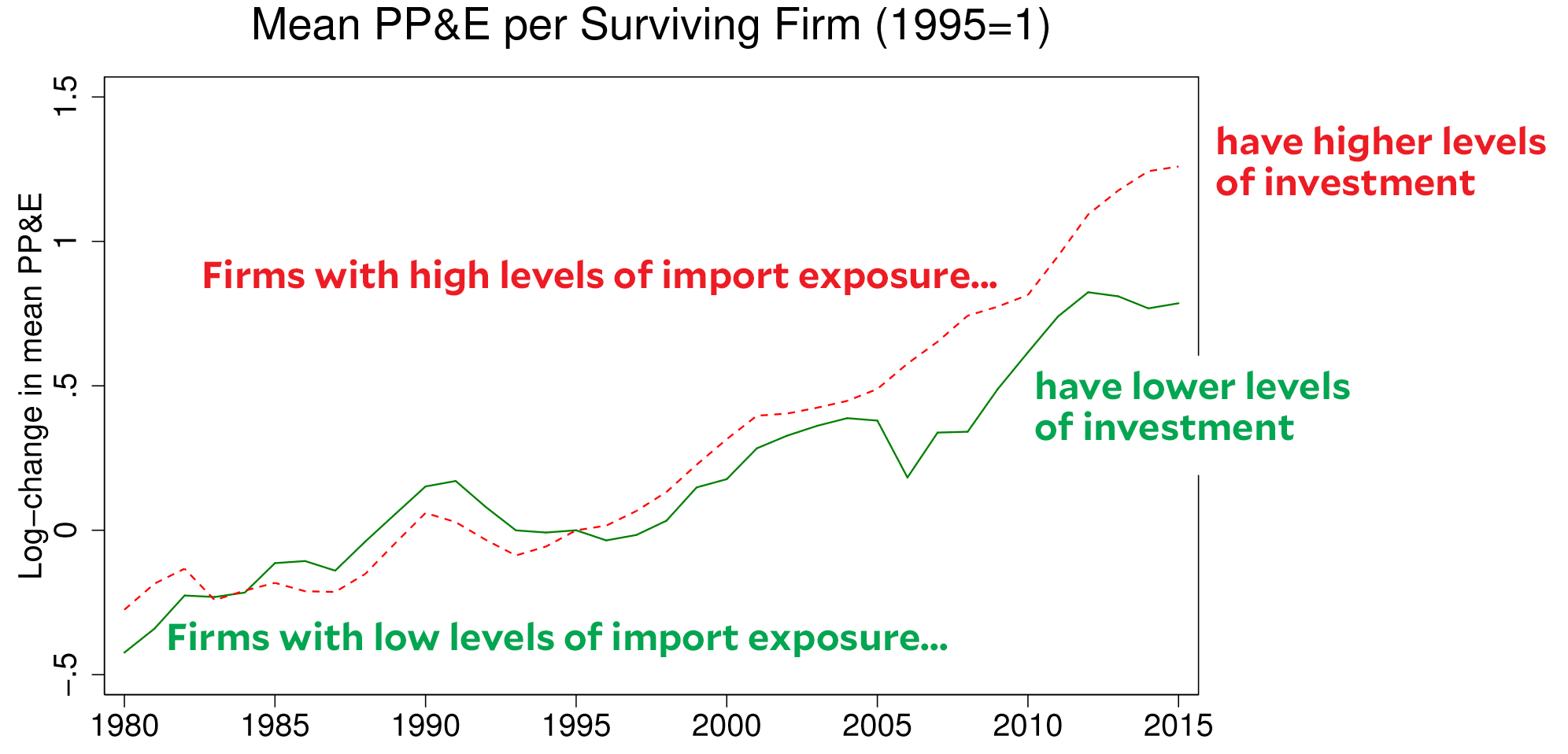Why are corporations sitting on such big piles of cash? Why aren’t they investing more? Max Ehrenfreund points to a new bit of research with an intriguing answer: as firms merge, their market positions become so powerful they don’t need to bother. After all, why spend money if you don’t have to?
To investigate this, Germán Gutiérrez and Thomas Philippon took advantage of a natural experiment: the big rise in Chinese imports during the aughts. What they found was that in sectors that were highly affected by Chinese imports, firms increased their investment spending in order to compete. In sectors that were lightly affected, they didn’t bother:

(Note that this is a log scale, so the difference between the lines starting around 2005 is actually quite large.)
The authors suggest that the same thing has happened more generally. As sectors have become more consolidated, competition has dwindled and the need for heavy investment spending has dwindled too.
I don’t have the chops to evaluate this, but I’m sure others will chime in. However, it reinforces my belief that competition is good for its own sake, and antitrust law needs to recognize this. We should move away from “consumer benefit” fables that corporations use to justify mergers, and instead insist on keeping sectors as competitive as possible.

















